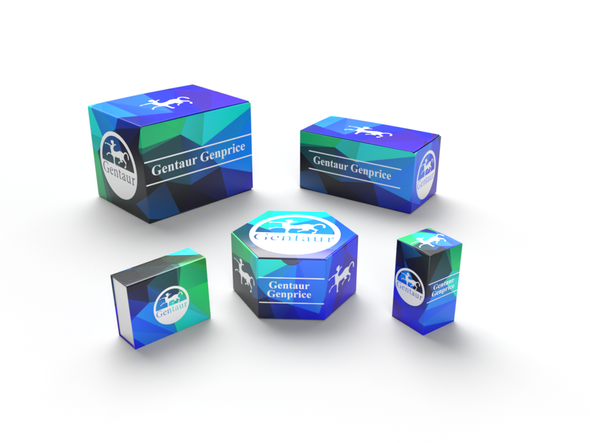740
Rat Proteoglycan 4 (PRG4) ELISA Kit | AE26033RA
- SKU:
- 740-AE26033RA
- Availability:
- Usually ships in 5 working days
Description
Rat Proteoglycan 4 (PRG4) ELISA Kit | AE26033RA | Gentaur UK, US & Europe Distribution
Species Reactivity: Rat (Rattus norvegicus)
Abbreviation: PRG4
Alternative Name: GS1-174L6.2; CACP; FLJ32635; HAPO; JCAP; MSF; SZP; bG174L6.2; OTTHUMP00000033580|articular superficial zone protein|bG174L6.2 (MSF: megakaryocyte stimulating factor ) |lubricin|megakaryocyte stimulat
Application: ELISA
Range: Request Information
Sensitivity: Request Information
Intra-Assay: ≤6.3%
Inter-Assay: ≤7.7%
Recovery: 1, 01
Sample Type: Serum, Plasma, Other biological fluids
Detection Method: Sandwich
Analysis Method : Quantitive
Test Principale: This assay employs a two-site sandwich ELISA to quantitate PRG4 in samples. An antibody specific for PRG4 has been pre-coated onto a microplate. Standards and samples are pipetted into the wells and anyPRG4 present is bound by the immobilized antibody. After removing any unbound substances, a biotin-conjugated antibody specific for PRG4 is added to the wells. After washing, Streptavidin conjugated Horseradish Peroxidase (HRP) is added to the wells. Following a wash to remove any unbound avidin-enzyme reagent, a substrate solution is added to the wells and color develops in proportion to the amount of PRG4 bound in the initial step. The color development is stopped and the intensity of the color is measured.
Product Overview: Proteoglycan 4 is an approximately 345-kD proteoglycan specifically synthesized by chondrocytes located at the surface of articular cartilage, and also by some synovial lining cells. This protein contains both chondroitin sulfate and keratan sulfate glycosaminoglycans. The cDNA encodes a protein of 1, 404 amino acids with a somatomedin B homology domain, heparin-binding domains, multiple mucin-like repeats, a hemopexin domain, and an aggregation domain. There are 3 consensus sequences for N-glycosylation and 1 chondroitin sulfate substitution site. The locus for autosomal recessive camptodactyly-arthropathy-coxa vara-pericarditis syndrome maps to chromosome 1q25-q31. This protein may act as a joint/intimal cell lubricant, and cell overgrowth may be primary to the pathogenesis of this protein.
Stability: The stability of ELISA kit is determined by the loss rate of activity. The loss rate of this kit is less than 5% within the expiration date under appropriate storage condition. The loss rate was determined by accelerated thermal degradation test. Keep the kit at 37°C for 4 and 7 days, and compare O.D.values of the kit kept at 37°C with that of at recommended temperature. (referring from China Biological Products Standard, which was calculated by the Arrhenius equation. For ELISA kit, 4 days storage at 37°C can be considered as 6 months at 2 - 8°C, which means 7 days at 37°C equaling 12 months at 2 - 8°C) .






